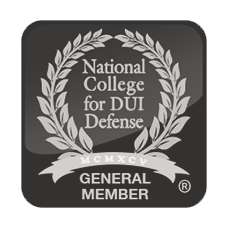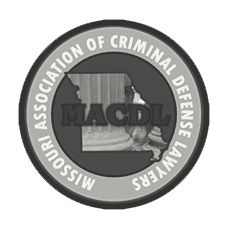Award Winning St. Louis DWI Trial Attorney
Taking a DWI case to trial is a bold undertaking and should not be taken lightly. JCS Law and award winning Missouri criminal defense lawyer John Schleiffarth provide a bold and aggressive defense fighting for those facing serious DWI charges.
- 2015 Super Lawyers Rising Star – Criminal Defense: DWI
- 2014 “Top 100 Trial Lawyers” Missouri, National Trial Lawyers Association
- Awarded 2014 and 2015 “10 Best” DWI Attorneys in Missouri for Client Satisfaction by American Institute of DUI Attorneys
- 2012, 2013, 2014 Clients Choice Award from Avvo.com
- 2013, 2014 Martindale-Hubbell Client Distinction Award
- 2014 “Top 40 Under 40″ Award from the National Trial Lawyers Association
Steps To Trial in a Missouri DWI
- Letters of Preservation-Preparing for trial begins the moment you hire an attorney. It is imperative that your attorney send a letter of preservation to preserve any video, audio or photographic evidence may exist in your case. For example if the office notes bloodshot eyes and slurred speech, yet your booking photo shows clear eyes and the video shows you speaking clearly, we need that evidence at trial. Many police officers, highway patrolmen or sheriffs deputies delete these records if they are not properly requested and preserved.
- In Person Administrative Hearing– If you blew, you will have received a 15 Day Driving Permit with the forms to request a hearing. Having an in person hearing provides a great advantage in your case when preparing for trial. The arresting officer can be subpoenaed to appear and testify under oath. You can also pay to have a court reporter present to record the hearing for later use. This information gained from these in person hearings can be invaluable. If your attorney does the hearing by phone, he is unable to view the hearing officers most recent file. Many times key documents are missing or errors that lead to a win even with the bleakest of cases.
- Petition for Review– If you refused to submit to a breath or blood test, you’ll need to file a petition to review the revocation for the violation of Missouri’s implied consent law. If you plan to go to trial on your criminal case, you will most likely take the refusal case to trial as well. The risks are usually far lower and our burden is higher. It allows you to cross examine the arresting officer, provide a expert witness, file motions with arguments and object to arguments made by the prosecutor. It also allows you to showcase the strength of your case to the prosecutor in the criminal case, which in most cases are from the same office.
- Expert Witness Review- We have access to the top experts in field sobriety, blood testing, speed radar and breath testing. We also employ a former police officer who is certified and trained in DWI Enforcement, N.H.T.S.A. trained in Standard Field Sobriety and Checkpoints. Using our experts and our expertise we can find errors that provide facts, evidence and testimony at trial giving you an aggressive edge.
- Depositions– Deposing state witnesses and the officers involved in your case can have an incredible impact on your case. It provides a pre-trial look at what you can expect at trial during testimony and also allows your to really dissect the arrest piece by piece with the officer and find any issues to your benefit that cannot always be seen in a report.
- Pre-Trial Motions– Filing pre-trial motions is the backbone of a good trial defense. These motions not only can preserve your right to make certain arguments, but they also allow you to potentially have certain evidence suppressed, meaning they cannot use it against you at trial. Some examples would be breath evidence, blood evidence, statements you made to police, Preliminary Breath Test or Standard Field Sobriety Tests/Results.
- Motions in Limine– These motions can potentially block the prosecutor from bringing up certain arguments, statements, prior criminal offenses, correlations between tests and blood alcohol level or one of many other issues that may face your case at trial.
- Pre-Trial Conference– This will finalize the ground works for trial and rulings on any pre-trial motions or motion hearings held. This is also usually around when the very best offers for a plea deal are made and even sometimes cases dismissed.
- Voir Dire– French for “to speak the truth.” The process through which potential jurors from the jury panel are questioned by the defense and prosecution to determine their suitability for jury service. Many cases are won during this process by winning over the jury early though carefully planned questioning.
- Knowing when to take a plea deal– Sometimes taking your case all the way up to trial allows for plea deal offers from the prosecutors that are so good it makes little sense to take on the risk of trial. This is different in each case and you should take the advice of your attorney, they have the experience to provide the best advice for your personal situation.
Featured In:






Award winning
law firm
DWI DEFENSE
CRIMINAL DEFENSE
FEDERAL CRIMES
75 W Lockwood Ave #250, Webster Groves,
MO 63119, United States









